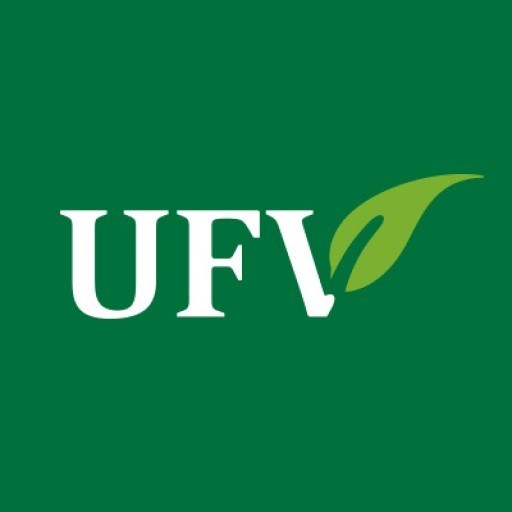Photos of university / #uwinnipeg
The Bachelor of Arts in Aboriginal Governance at The University of Winnipeg is a comprehensive undergraduate program designed to equip students with a deep understanding of Indigenous political, social, and cultural issues. Over the course of four years, students will explore the historical and contemporary contexts of Aboriginal governance, including Indigenous sovereignty, self-determination, and treaty rights. The curriculum emphasizes integrating Indigenous knowledge systems with Western political theories, fostering critical thinking and analytical skills necessary for effective leadership and advocacy in Indigenous communities and organizations. Students will engage with courses covering topics such as Indigenous law, policy development, community leadership, and social justice, preparing them for careers in government, Indigenous organizations, non-profit sectors, or further academic study. The program also encourages experiential learning through community engagement and internships, allowing students to apply their knowledge in real-world settings. Emphasis is placed on developing strong communication skills, ethical considerations, and cultural competence, enabling graduates to contribute meaningfully to the policymaking processes and governance structures affecting Indigenous peoples. With a supportive faculty experienced in Indigenous issues and a vibrant student community, the Aboriginal Governance program offers a unique and enriching educational experience aimed at fostering respectful and informed Indigenous leadership. Graduates will be well-equipped to navigate complex governance challenges and advocate for Indigenous rights and well-being, making a positive impact both locally and nationally.
The Bachelor of Arts in Aboriginal Governance at the University of Winnipeg offers students a comprehensive and in-depth understanding of governance systems, political processes, and social issues affecting Indigenous communities in Canada. This four-year program is designed to equip students with the knowledge, skills, and perspectives necessary to contribute meaningfully to Indigenous leadership, policy development, and community development initiatives. Throughout the program, students engage with a diverse curriculum that explores the history, culture, and political realities of Indigenous peoples, fostering a deep appreciation of their unique experiences and challenges. The program emphasizes critical thinking, cultural competency, and ethical considerations, preparing graduates to navigate and influence complex governance structures at local, provincial, and national levels. Courses cover a wide range of topics including Indigenous legal traditions, land rights and resource management, sovereignty and self-determination, contemporary political issues, and the role of Indigenous organizations. Students also have opportunities for experiential learning through internships, community projects, and partnerships with Indigenous organizations, enabling them to apply theoretical knowledge in practical contexts. The program promotes an interdisciplinary approach, integrating perspectives from political science, anthropology, history, and law to provide a well-rounded understanding of Indigenous governance. Graduates of this program are well-prepared for careers in government, non-profit organizations, advocacy groups, and Indigenous institutions, where they can serve as policy advisors, community organizers, or administrative leaders. The university's supportive learning environment encourages collaboration, cultural exchange, and the development of leadership skills, ensuring students are fully equipped to contribute to Indigenous governance and broader societal progress.
The Aboriginal Governance Bachelor's Degree program at The University of Winnipeg requires students to complete a total of 120 credit hours over four years of full-time study. The curriculum is designed to provide a comprehensive understanding of Indigenous governance systems, policies, and sovereignty issues, with an emphasis on Indigenous governance within Canada. Students are expected to engage in a combination of core courses, electives, and community-based learning opportunities, which develop their knowledge of Indigenous history, culture, law, politics, and contemporary issues.
The program mandates the successful completion of foundational courses such as Introduction to Indigenous Governance, Indigenous Peoples and Legal Systems, and Indigenous History in Canada. In addition, students must take courses in Research Methods, Indigenous Languages, and Ethics in Indigenous Research. Advanced coursework includes topics like Indigenous Leadership, Land Rights and Resource Management, and Indigenous Self-Determination Strategies. Students are also encouraged to participate in internships, fieldwork, or community projects to gain practical experience and apply theoretical frameworks to real-world governance challenges.
In their final year, students undertake a major research project or thesis that demonstrates their understanding of key concepts and their ability to critically analyze issues facing Indigenous communities. Throughout the program, students are expected to complete a certain number of credit hours in community engagement activities, which emphasize experiential learning and foster strong relationships with Indigenous organizations and leaders. The program emphasizes intercultural competence, ethical research practices, and respect for Indigenous protocols. Upon successful completion of all coursework and requirements, graduates receive a Bachelor of Arts in Aboriginal Governance, qualifying them for careers in Indigenous governance, policy development, community leadership, and related fields.
Financing studies for the Aboriginal Governance (4 years) program at The University of Winnipeg typically involve a combination of government grants, scholarships, bursaries, student loans, and personal funding. As a public institution committed to Indigenous education, the university offers numerous financial assistance options tailored to support Indigenous students pursuing undergraduate degrees. Students are encouraged to apply for Indigenous-specific scholarships, which are often provided by the university, government agencies, and Indigenous organizations. These scholarships aim to reduce financial barriers and promote greater access to higher education for Indigenous communities. Additionally, federal and provincial student loan programs are available to eligible students to cover tuition fees, living expenses, and related costs during their studies. Many students also secure bursaries based on financial need, academic achievement, or community involvement. The university's financial aid office provides comprehensive guidance on applying for these funding sources, as well as information on work-study opportunities that enable students to gain practical experience while earning an income. International students, if applicable, should explore additional funding options such as external scholarships or private loans, as their financing options may differ. Overall, students are advised to plan their finances early, explore multiple funding avenues, and consult university resources dedicated to supporting Indigenous learners to ensure a successful academic journey in the Aboriginal Governance program.
The Bachelor of Arts in Aboriginal Governance at the University of Winnipeg is a comprehensive undergraduate program designed to provide students with a deep understanding of Indigenous governance systems, political structures, and cultural frameworks within Canada and beyond. Spanning four years, the program integrates coursework in Indigenous history, law, politics, and community development, emphasizing the importance of Indigenous self-determination and sovereignty. Students engage with a curriculum that includes both theoretical foundations and practical applications, preparing graduates for careers in government, non-profit organizations, community leadership, or further academic pursuits. The program often features opportunities for fieldwork, internships, and community projects, allowing students to gain hands-on experience and establish networks within Indigenous communities and organizations. An interdisciplinary approach ensures that students develop critical thinking, leadership, and communication skills essential for fostering meaningful change and advocating for Indigenous rights. Collaboration with Indigenous elders, leaders, and scholars is a key component of the program, enriching students’ learning experiences and fostering a respectful understanding of Indigenous worldviews and cultural practices. The university’s commitment to Indigenous education and reconciliation is reflected in this program, which aims to empower Indigenous and non-Indigenous students alike to contribute positively to Indigenous governance and policy. Graduates of the Bachelor of Arts in Aboriginal Governance are well-equipped to pursue careers in policy analysis, community development, education, and governmental roles, or to continue their academic journey with graduate studies. Overall, the program plays a vital role in advancing Indigenous leadership and governance, supporting students to become agents of positive social change within their communities and beyond.


